HOME > Basketball
Being the final shot in the first game, how can Thunder G2 stop the decline? ESPN must read the five major adjustments
7:25pm, 8 June 2025【Basketball】
This is probably the most exciting opening of this year's finals - on June 6, the first game between the Thunder and the Pacers, from "one-sided" to "heart-beating accelerated". The Thunder forced the opponent into 25 mistakes in the whole game, setting a record for a single-game turnover in the 21st Century Finals; Alexander scored 38 points, a full 24 points more than the opponent's core point guard; he was overtaken in the last 0.3 seconds of the game... What's the result? The Pacers completed the final victory 111-110 away, and the snatched off to a good start.
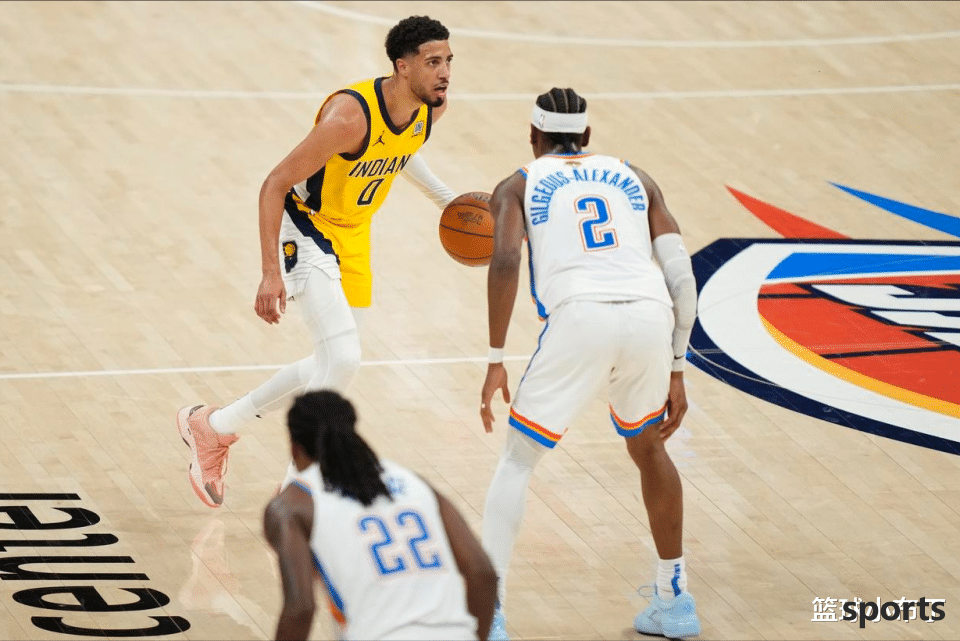
To be honest, this ball was awkwardly lost. The Thunder originally held a good hand: they forced the Pacers to make 19 mistakes in the first half and almost punched in early; Alexander used 38 points to prove the quality of "Mr. Big Scene"; even substitute Harten was more efficient than starting Holmegren in 17 minutes, 9 points and 9 rebounds... but in the end, he let the Pacers turn the tables with team resilience.
The problem is now: The Thunder is behind 0-1, and although they are still the favorite to win the championship (ESPN pre-match odds -700), the first game almost exhausted all the fault tolerance space. What exactly went wrong with them? Let’s take a look at the five major adjustments in the ESPN column one by one.
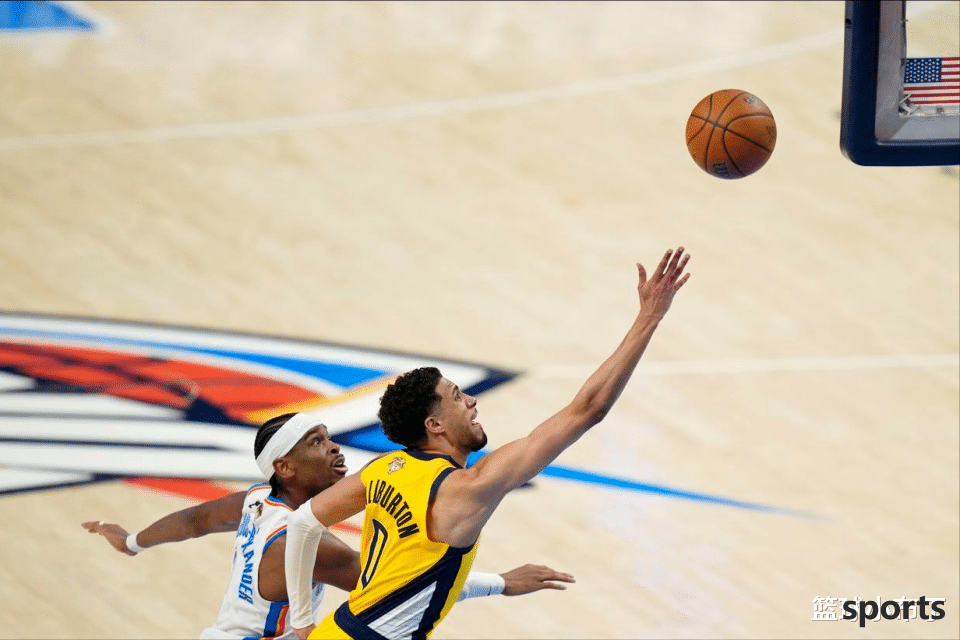
The first level: Psychological shadow is more difficult than scores
Losing is not scary, what is afraid of is being "turned up" has taken root in my heart. The Knicks are the lessons of the past - the first match of the Eastern Conference Finals was reversed by the Pacers, but their mentality was unbalanced and lost two consecutive games, laying the groundwork for the final elimination. The Thunder are glad that they have a calm leader like Alexander: they played against the Nuggets in the second round, and after the collapse of the first game, G2 scored 87 points in the first half, winning 43 points directly; G3 lost in overtime, and G4 won again away. This kind of "undefeated" resilience is too critical.
But the opponent Pacers are not soft persimmons either. In the first half of the first game, he was shocked by the finals (19 mistakes), and immediately adjusted to only 6 mistakes in the second half, like a boy who suddenly woke up. If the Thunder are crushed by psychological burdens again and lose another game at home, it is hard to say later.
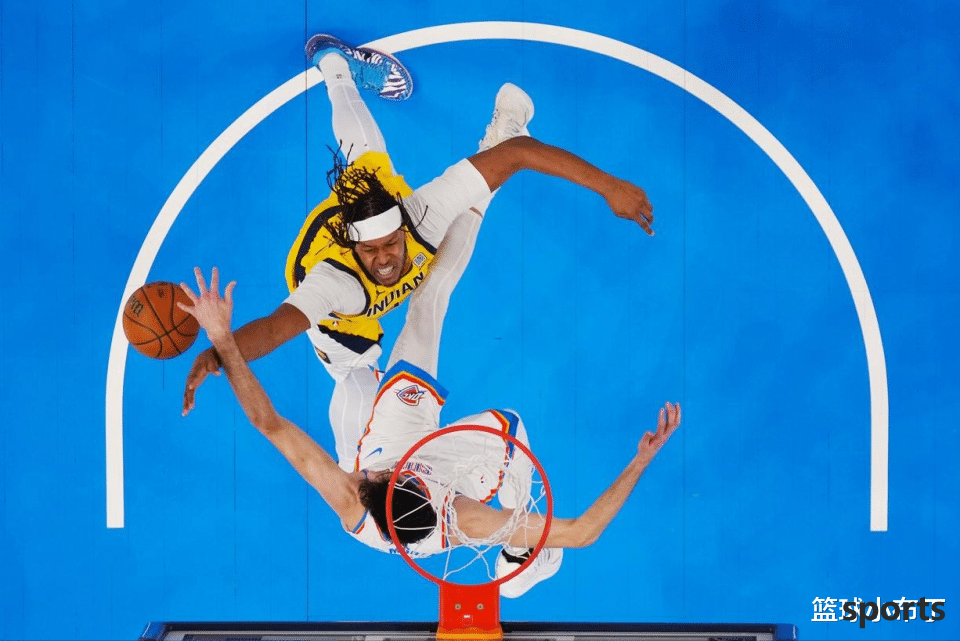
The second level: Homgren and Jewish, the edge was 38 points, but the "left and left protection" around him was too bad. Homegren made 2 of 9 shots and only 6 points, but was abandoned by the coach in the final quarter; Jewish made 6 of 19 shots, and 1 of 4 from outside the three-point line - these two are the "barometer" for the Thunder to win: When the condition is good, the team is basically stable; when the condition is poor, no matter how strong Alexander is, he will be unable to support it.
What's even more embarrassing is that the Thunder changed the starting lineup for mobility and used Wallace to replace Harten to play a small lineup. As a result, Homegren couldn't withstand the pressure, but Harten was more efficient on the bench. Turner, the Pacers opposite, protected the basket with 15 points and 9 rebounds, and Topin scored 5 three-pointers and 17 points. Siakam had the upper hand against Jewe - the Thunder's "No. 2 and 3 scoring points" collectively remained silent, but the team was blossoming, how could this stand it?
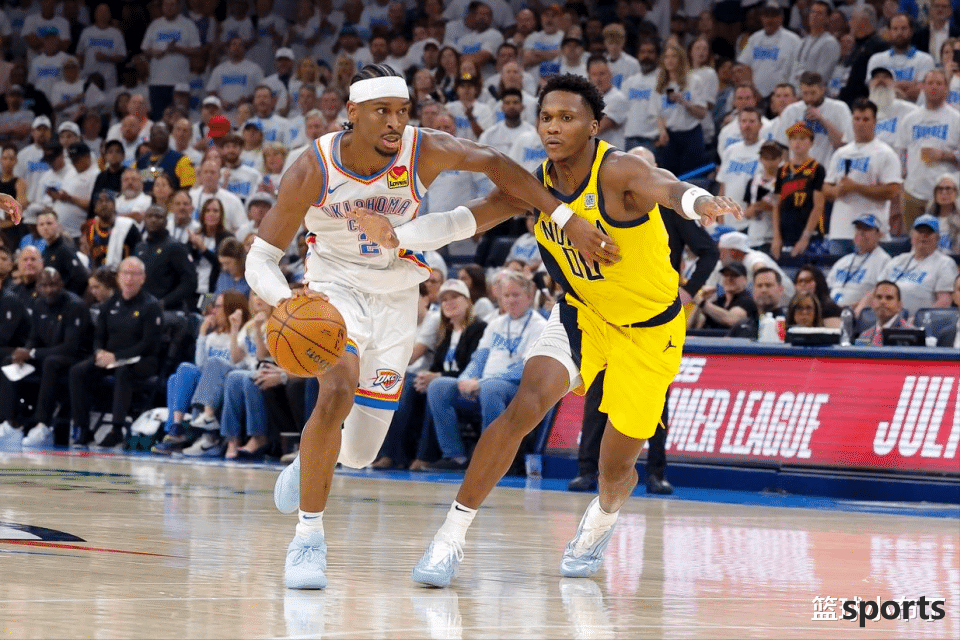
The third level: Don't "fight alone" the attack again
The Pacers' defensive strategy is very thrifty: if you don't defend or double-team, let Alexander hard and fight with each other. This move directly disrupted the Thunder's offensive rhythm - he only passed 208 times in the game, which was the least passes in a single game this season (regular season + playoffs); he scored 13 assists, setting a new playoff low (previously the lowest 19 times).
To put it bluntly, the Thunder's attack is too "independent". The last time this happened in the playoffs, the Cavaliers were targeted by the Pacers, and Mitchell was "isolated". Now it's Alexander's turn - if he continues to play like this, even if he scores 38 points in every game, his teammates still have to lose when they don't feel the touch.
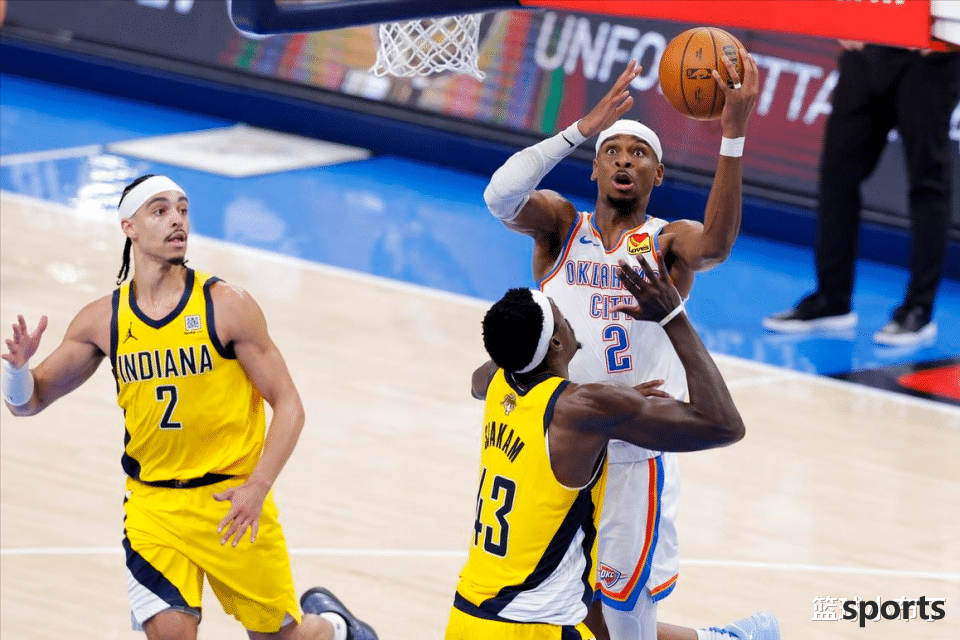
Level 4: The end of the basket, should it be on time?
The Thunder made 19 mistakes in the first half, but the score did not widen - the offensive efficiency was too poor. The basket made 20 of 36 shots, 3 of 18 shots, and the conversion efficiency was 0.4 points per time (1.4 points per season average), which was more than three times the gap.
What's the problem? The Walker's Turner is so capable of protecting the basket! When the Thunder faced him with defense, they made only 1 of 9 shots in the penalty area. Alexander scored hard for the first goal, and then everyone else was disturbed and missed, especially when Homegren was ridiculously soft in the inside. At the normal finishing level, the Thunder can score at least 8 points in this game - if they get those 8 points, they will be the one who leads 1-0 now.
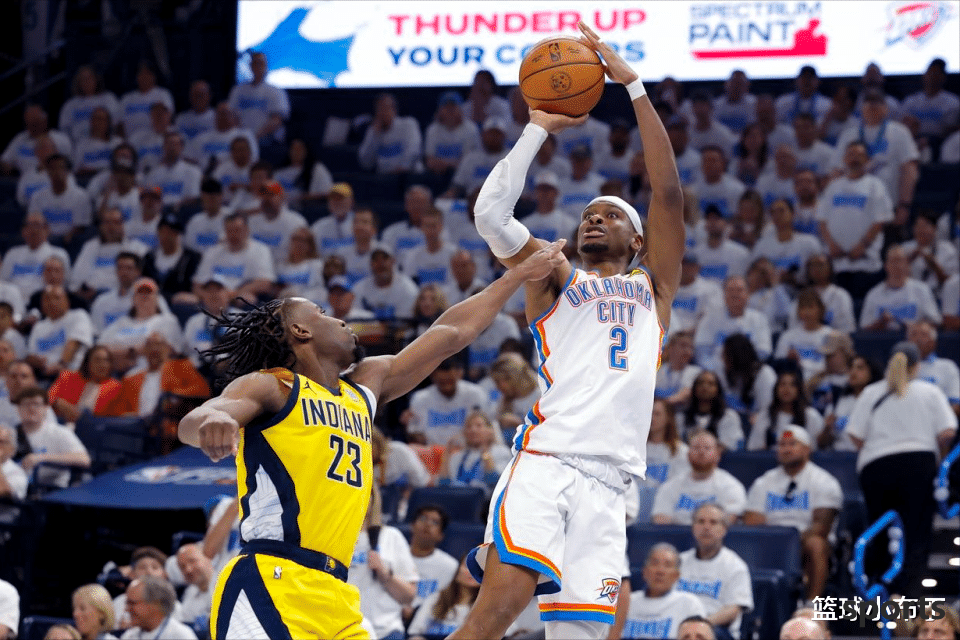
Level 5: The bottom corner three-pointer, which is outrageously missing
The Thunder's defense has always been fierce, but there is a fatal loophole - the bottom corner three-pointer. In order to shrink the inside, they are the team that is most likely to miss bottom corner shooters in the entire league. The Pacers directly grabbed this "life gate": 10 of 16 three-pointers in the bottom corner (63%), and 7 of 9 shots in the second half (78%). Each shot is the key to the reversal.
To put it seriously, some three-pointers were taken by the Thunder (the price of assisting defense and changing defense), but there were several communication mistakes that directly missed people - this was the finals, and this was really unbearable.
The current Thunder is very similar to the state of the Nuggets in the second round: the first game has failed, and it has to rely on the strong rebound of G2. Teacher Su Qun mentioned the "Z-shaped rule" before, saying that Thunder G2 can win a championship - can it be fulfilled? It depends on whether they can fill these five loopholes.
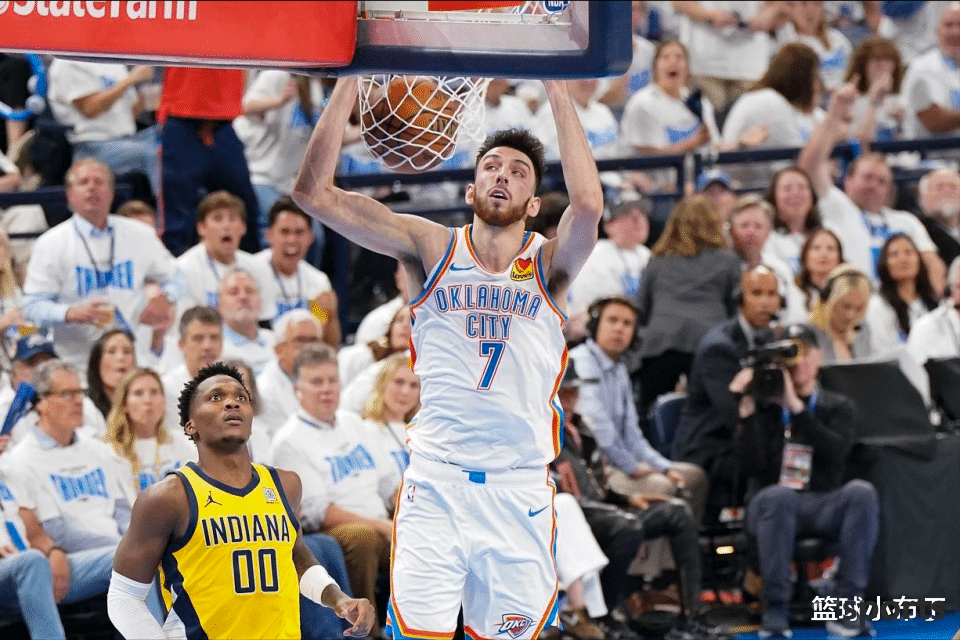
The growth of young teams is often hidden in the cycle of "loss-adjustment-rebound". The Thunder have had experience in reversing the Nuggets, and the Pacers have also had examples from being "scared" to "awakened". The finals have just begun, and it is not scary to fall behind 0-1, but what is scary is that "the problem has not been solved".
In the next G2 game, if the Thunder can throw away the psychological burden, Homegren and Jewish stick up, conduct more offenses, end the basket at the right point, and do not miss the bottom corner - that story may be the other way around.
After all, who doesn't want to see a young army make mistakes and win the first championship in the team's history?
Related Posts
- Hornets coach: Kneipelmann Sexton has a chance to start and they can play a key role
- Markkanen: Murinen is on the right path and he can make a fortune in the NBA
- Foreign media show James interacting with fans in the rain: Heavy rain cannot stop the whole city from moving to welcome James
- The sixth man once was! Analysis of how Clarkson supports the Knicks substitute attack
- No. 1 in the league! No. 1 in the league! The 24-year-old No. 1 pick is crazy about gaining muscles, he wants to hit the scoring champion + MVP
- Top 100 stars are released!
- What’s the matter! The Warriors quietly strengthened it, and they added 2 more! OK, I can explain it
- Return to the Cavaliers? James statement has caused heated discussion, US media lists 8 potential destinations, and the four top picks are expected to join forces
- 125 million in 5 years! The NBA s first contract of RMB 100 million this summer was born, and the number one player in the draft was counterattacked
- Absolute nemesis! The Thunder fought the Eastern Conference with 30 wins and 2 losses this season, only losing to the Cavaliers + Pacers one game each
Hot Posts
- Hornets coach: Kneipelmann Sexton has a chance to start and they can play a key role
- Markkanen: Murinen is on the right path and he can make a fortune in the NBA
- Foreign media show James interacting with fans in the rain: Heavy rain cannot stop the whole city from moving to welcome James
- The sixth man once was! Analysis of how Clarkson supports the Knicks substitute attack
Recommend

Break and reunion! Sun: Rashford and his childhood sweetheart girlfriend reunited again & appeared together

Completely drifted! Rejected the Lakers by 89.2 million! He threatened to easily score in the All-Star
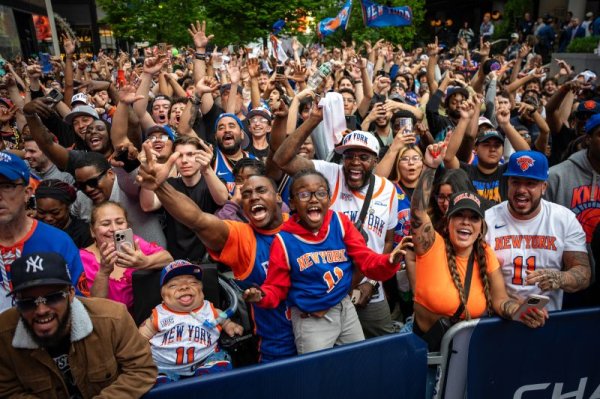
Knicks rekindle hope and championship dreams for New York after trough
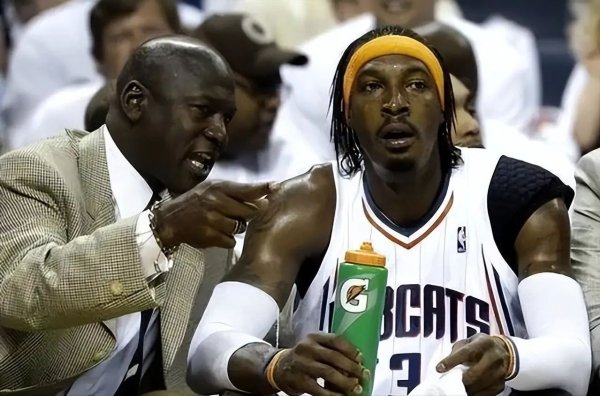
The first generation of Elvis Bobcats, 1st steals + All-Stars + Defensive team, averaged 19.4 points per game at the peak!

Cui Yongxi introduced herself in English, Wang Junjie s smile could not be hidden, and the two had Chinese food together!
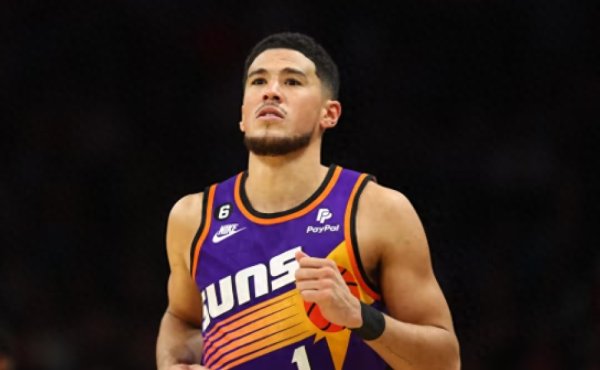
Booker is at the helm! It is revealed that the Suns have decided to choose a coach, and he is expected to sign a big contract this summer
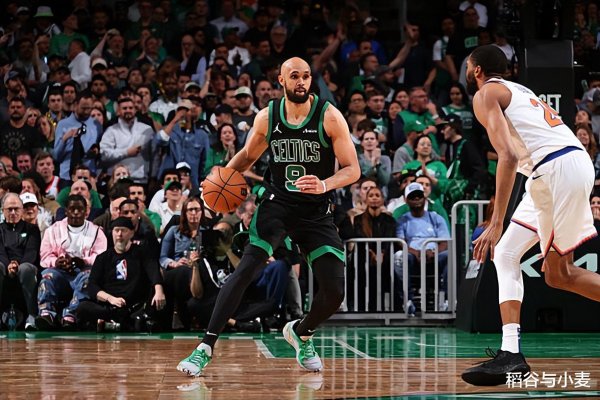
The most underrated player! The Celtics backcourt player is fully capable of becoming the team s leader
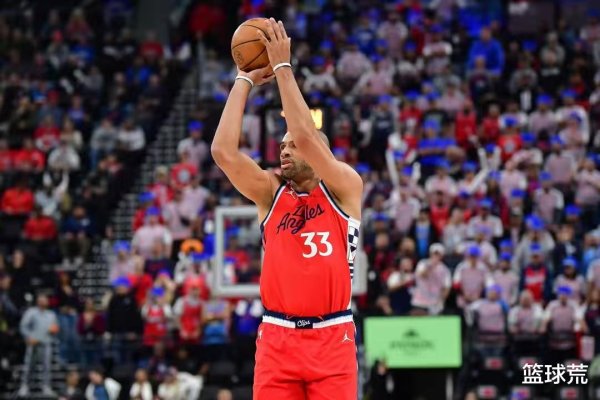
French Pippen retired for another year! From 1 to 5, an all-around fighter, 120 million contracts are pitted by Jordan